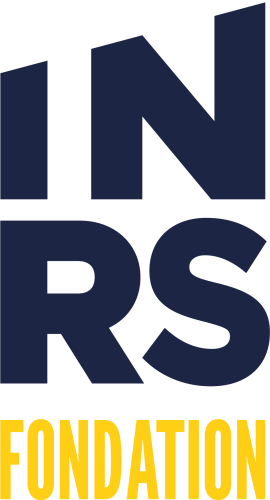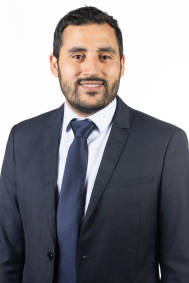Yassine Ouarda
M. Sc. and PhD in water sciences, (2014, 2020)
Project Leader in water treatment, Environ-Experts
"If I had to offer one piece of advice to current and future students, it would be to develop and maintain a good network of contacts. It is important to maintain good relationships with your colleagues and share your experiences with others. It's an invaluable resource especially in preparation for a scientific career."
Yassine Ouarda was carried away by the adventure when he decided to pursue his studies at INRS, following his graduation from the Institut Supérieur des Hautes Études en Développement Durable (ISHEDD) in a program in partnership with the Institut national de la recherche scientifique (INRS). This collaboration contributes to the sharing of expertise and knowledge in the context of the internationalization of university training and research and allows students in Morocco to complete one year at ISHEDD and the second at INRS. Motivated by his interest in water preservation and a desire to find solutions related to drinking water contamination, he arrived in Québec City in August 2012. "I remember exactly the date I arrived at INRS. The 18th. I had just arrived and already a few days later, I was leaving for a week of initiation to water sciences at the CIRSA camp (Interuniversity Center for Salmon Research) in Sacré-Cœur. This experience is forever engraved in my heart. My attachment to Québec was born as soon as I arrived there, in this exceptional place. I met students from all over the world who had come, like me, to pursue their studies at INRS and it was a decisive experience for building relationships. It is by far my fondest memory of INRS.
Each year, as part of the university's back-to-school period, students newly enrolled in the INRS Master's program in water sciences go to the CIRSA station of the Centre Eau Terre Environnement for an introductory field camp in the company of professors. Located on the banks of the Sainte-Marguerite River, in Sacré-Coeur, in the Saguenay-Lac-Saint-Jean region, the station provides access to a range of aquatic environments (river, lake, estuary, groundwater) that are used to familiarise students with various water science expertises. For more than a week, students take part in a variety of field experiences and develop new relationships, both friendly and professional.
Yassine completed his master's degree (2014) and his PhD in water sciences (2020) under the direction of Pr Patrick Drogui. During his university career, he was able to complete several training courses, notably in Mexico, Morocco and France. Moreover, Yassine believes that these experiences have offered him "a greater openness and fruitful exchanges. The many opportunities offered by INRS prepare you well for your career. Whether it be scholarships, internships or innovative projects. He also emphasizes the state-of-the-art infrastructure of the Water, Land and Environment Centre, which is exceptional.
During his studies, he published numerous articles related to wastewater treatment in international journals and won the first prize at Aqua-Hacking in 2021 for the Rivière des Mille-Îles project with the O-tech team. Yassine would like to thank them, as he considers the mission of this nonprofit to be a real springboard to help young people set up innovative businesses to tackle the most critical freshwater problems facing the province. For this competition, Yassine presented the O-Plast technology, a grey water treatment system designed to remove microplastics from water coming mainly from commercial laundries. The solution combines membrane filtration and electro-oxidation, resulting in complete degradation of microplastics. He was also awarded a prestigious postdoctoral fellowship from the MITACS Elevation Program.
Today, Yassine still wants to contribute to the influence of INRS because he considers himself "privileged" to have studied there. He adds: "If I had to offer one piece of advice to current and future students, it would be to develop and maintain a good network of contacts. It is important to maintain good relationships with your colleagues and share your experiences with others. It's an invaluable resource, especially in preparation for a scientific career.
To learn more about the CIRSA : https://www.youtube.com/watch?v=igWRN5Xt3Bg&t=37s
To learn more about the AquaHacking programme : https://aquaaction.org/fr/nos-programmes/defi-aquahacking/
[Interviewed in February 2023.]

